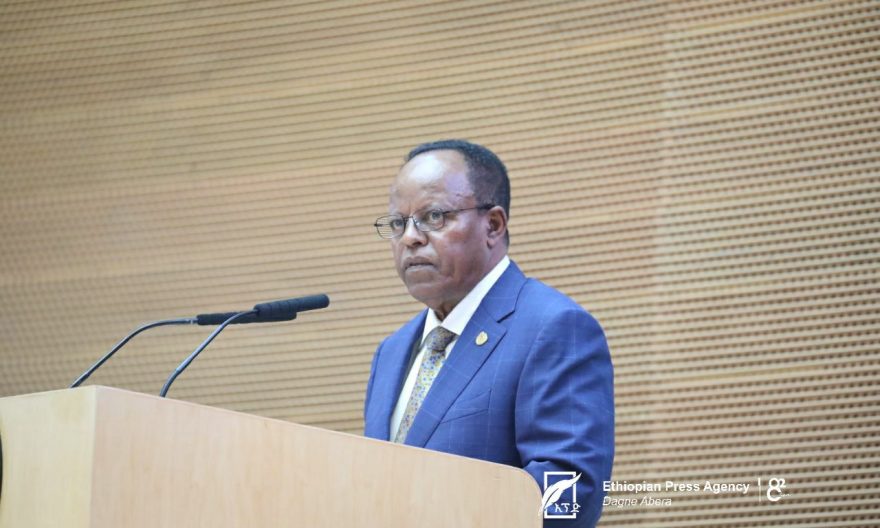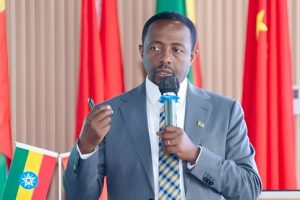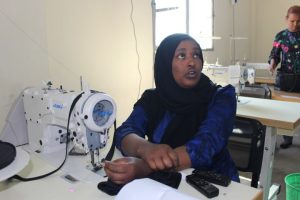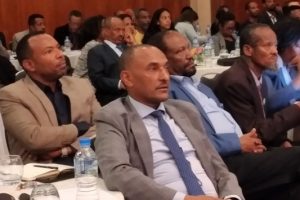
ADDIS ABABA – The African Continental Free Trade Area (AfCFTA) agreement will transform Africa’s small and fragmented markets into a single economic powerhouse of over 1.4 billion people, according to President Taye Atske Selassie.
Speaking at the 15th Meeting of the AfCFTA Council of Ministers at the African Union, President Taye emphasized that the agreement serves as a force multiplier, driving economic integration and enhancing connectivity across the continent for accelerated growth.
He highlighted that the AfCFTA aligns with the African Union’s Agenda 2063 and the UN’s Sustainable Development Goals (SDGs), providing a framework to enhance food security, promote gender equality, and reduce poverty. Ethiopia’s recent economic reforms, including a shift to a market-based exchange rate, the removal of import restrictions, and new directives allowing foreign investors in key sectors, are in line with the broader goals of the AfCFTA.
The president also mentioned Ethiopia’s submission of its tariff offer in trade goods to the AfCFTA Secretariat for verification, as the country works towards finalizing the remaining implementation processes. A national committee has been established to coordinate the domestication of the agreement, and existing laws and regulations are being revised to create a conducive environment for its full implementation.
Furthermore, President Taye stressed the importance of cooperation to harness Africa’s critical minerals and strategic resources, calling for a focus on value-added, green, smart, and digitized economic growth to propel the continent forward.
Minister of Trade and Regional Integration, Kassahun Gofe (PhD), emphasized that the AfCFTA is a vital tool for boosting investment, creating jobs, fostering economic growth, and expanding value chains across Africa.
Wamkele Mene, Secretary General of the AfCFTA Secretariat, noted that the acceleration of AfCFTA implementation at the national level remains a key focus. He pointed to the inclusion of the private sector, youth, and small and medium enterprises (SMEs) as well as the promotion of industrial development as central goals for the future.
The AfCFTA has made significant progress, especially with the adoption of two key protocols: one focused on women and youth in trade, and the other on digital trade. Mene stressed the need for intensified efforts to accelerate industrial development and improve Africa’s productive capacity to foster value-added trade.
Infrastructure development and the expansion of intra-Africa trade remain critical areas of focus. To this end, AfCFTA is collaborating with the African Bank and the African Development Bank, with the Pan African Payment and Settlement System now fully operational, reducing currency conversion costs and simplifying cross-border trade.
Looking ahead, Mene announced that the AfCFTA Adjustment Fund, designed to assist member states in adapting to the agreement and mitigating potential revenue losses from reduced customs duties, is set to begin disbursements in early 2025. The council has already mobilized over 1 billion USD and is working towards a target of 10 billion USD to capitalize the fund and support Africa’s industrial development.
A Memorandum of Understanding (MoU) was also signed between the AfCFTA Council and the African Quality Infrastructure (PAQI) institution to further strengthen the continent’s trade infrastructure.
BY BETELHEM BEDLU
THE ETHIOPIAN HERALD SUNDAY EDITION 10 NOVEMBER 2024





